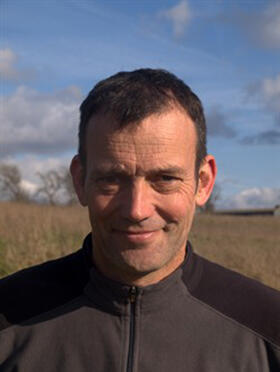
Steve Torr recently joined LSTM to take up a position as Professor of Neglected Tropical Diseases within the Vector Biology Department, but with strong links to the Centre for Applied Health Research & Delivery(CAHRD) and the University of Warwick Medical School where he has a joint appointment.
Professor Torr has over thirty years experience in research, development and field application of technologies to control vectors, particularly tsetse flies and mosquitoes. He has extensive experience of field work in Africa, including eight years on attachment to the Zimbabwe Department of Veterinary Services as a tsetse ecologist.
For the past five years, Professor Torr has been working with a multinational team, led by LSTM’s Professor Mike Lehane, developing artificial baits to attract and kill the vectors of Gambian sleeping sickness in Central and West Africa. The project is currently conducting large-scale trials in Uganda and Guinea and, following encouraging results, they are developing plans to expand the use of vector control in global efforts to eliminate Gambian sleeping sickness.
Professor Torr has extensive experience of work on tsetse that transmit Rhodesian sleeping sickness and animal trypanosomiasis in East and Southern Africa. In the 1980s, he was a member of the UK-Zimbabwe team that that developed so-called ‘artificial cows’ - insecticide-treated targets baited with artificial odours that attract and kill the important vectors of animal trypanosomiasis (‘nagana’). And in the 1990s, he led the team that developed the use of the restricted-application protocol in which insecticide is applied to the body regions of cattle where most tsetse land and feed thereby reducing costs and environmental impact. Both these methods have been used in large-scale control operations against nagana and sleeping sickness in Botswana, Uganda and Zimbabwe.
In recent years, professor Torr has developed a strong interest in integrated approaches to the control of vector-borne diseases. For instance, the use of insecticide-treated cattle to control tsetse, ticks, mosquitoes and midges offers the intriguing prospect of controlling a range of medical and veterinary diseases with a single intervention. The move to LSTM brings the exciting opportunity of collaborating with researchers and practitioners from LSTM’s Vector Biology Department, CAHRD, Centre of Neglected Tropical Diseases and the University of Warwick to develop and deliver better methods of controlling vector-borne diseases.